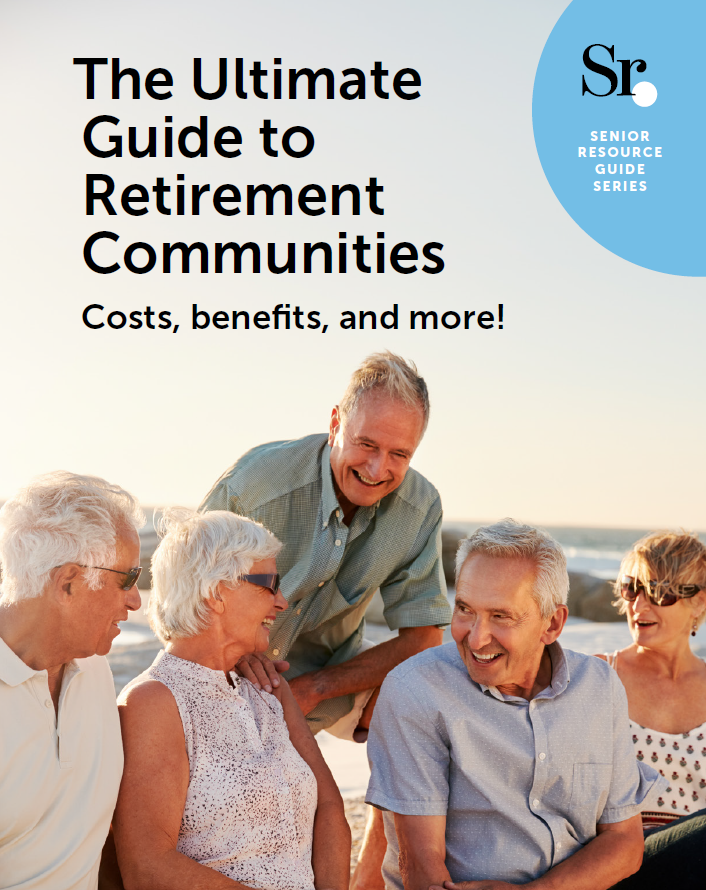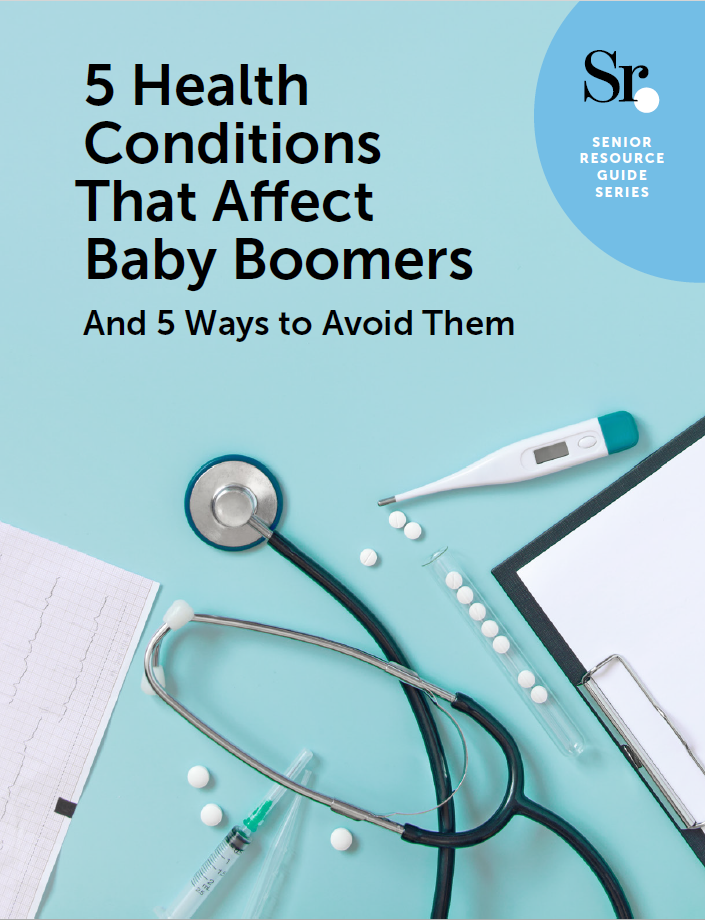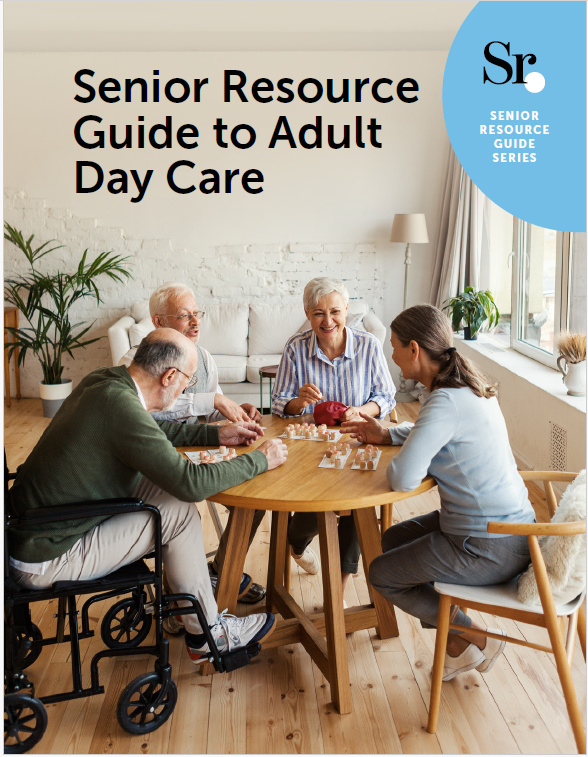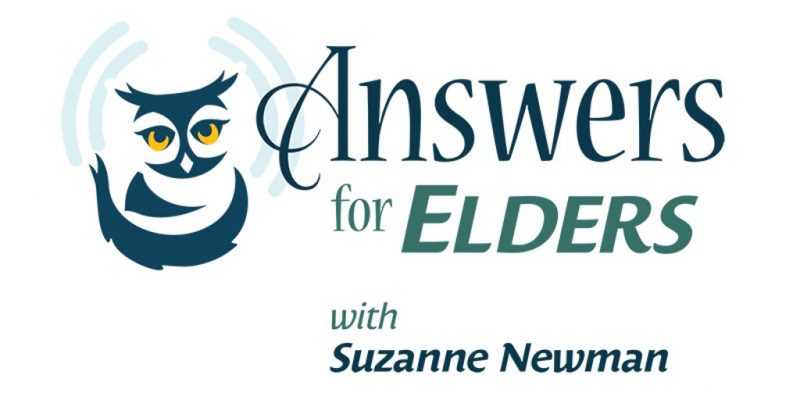home care (Page 8 of 49)
Memory Care: Lavender Sky program at MorningStar Senior Living, part 1
Rebecca Martin, MorningStar Senior Living’s VP of Memory Care, joins Suzanne to talk about their Lavender Sky program. Lavender Sky is the communities’ Alzheimer’s and dementia memory care philosophy and programming services, which takes a holistic approach.
Why is it called Lavender Sky? Rebecca explains, “That really comes from our tagline at MorningStar, which is to cast a new light, and that is our goal, just knowing that so many people come to us having those feelings of despair or anxiety, and wanting to find the best place for their senior loved one. And also, the color dark purple is often associated with Alzheimer’s, so we decided, when we cast light on the darkness of all of those emotions, that we can really bring peace to those families, that we can lift them up to a lighter, more hopeful space. And just doing so lightens that color to lavender. So we chose to call it Lavender Sky. And for the soothing properties of lavender, the plant, which is known to help therapeutically soothe anxiety.”
Rebecca continues, “The program is really more than just a training program. This is our philosophy on memory care with staff training, family support services, and our signature standards that you can see in all 32 of our homes. What we did there is branch off of our mission statement and our commitment to really value all seniors as gifted in contributing individuals. We thought, how do we continue to do that despite the challenges that come with dementia? How do we continue to draw out those gifts and support our seniors to really feel genuinely valued?
“We’ve had the Lavender Sky training program since about 2013. It has evolved over the years, and the program has been developing over this past year to include additional layers: the family support, and even community training for first responders, or anybody that really just wants to have a greater understanding of dementia and Alzheimer’s.
“We require all of our staff to go through the Lavender Sky training. So, whether they work in culinary, housekeeping, or the front desk, we want them to have that deeper understanding of what dementia is, because 70% of our residents, even in assisted living, can have some cognitive challenges. So we want them to be able to identify when someone might benefit from additional support, or how to redirect somebody that may have some cognitive challenges. And we just want everyone to feel fully comfortable, equipped, and confident that they know how to engage with a resident, how to redirect them if necessary. And to really understand, with great empathy, what’s physically going on with their cognitive decline.”
See a video introduction of Lavender Sky with Rebecca Martin, and learn more atMorningStar Senior Living’s website.
Memory Care: Lavender Sky program at MorningStar Senior Living, part 2
Suzanne talks with Julie Wilkins, Ignacio Lopez, and Rebecca Martin to talk about MorningStar Senior Living’s Lavender Sky program. Rebecca Martin is VP of Memory Care, Julie Wilkins is Vice President of Clinical Resources at EmpowerMe Wellness, and Ignacio Lopez is a dementia resident expert at MorningStar at West Valley.
This segment focuses on where we go in the future with breakthroughs in Alzheimer’s and dementia therapies, and how they plan for the future with Lavender Sky, the communities’ holistic approach to Alzheimer’s and Dementia memory care.
Rebecca says, “We’re constantly reevaluating our current programs, just looking at our new clientele, and unfortunately, we do see an increase in earlier onset Alzheimer’s and dementia. So how does programming change for somebody that is 55 or 60 versus our our previous clientele that was in the older ages of 80 and 90. So we’ve looked at a lot of different holistic modalities and the benefits in implementing them into our program offerings, and just see so much success from that. So that’s I think really where we’re going is furthering the development of our activity offerings.”
Julie says, “There’s just a ton of research being done. Things come out every month. We are constantly updating our program. One of the more interesting things of late has been the connection between music and improved memory, improved depression, agitation, and the areas that are stimulated in the brain by music. But the other piece of that is the individualized component. We strongly associate music of certain types with emotions and experiences, so we always want to make sure that we’re pairing, you know, something that has a positive impact on the individual, or a type of music that they’ve always enjoyed, or something that has always made them feel uplifted or calmed in something.
Ignacio says, “We’re looking at things to include like cognitive stimulation therapy as well, and new things that are always up and coming. We want layer those into our Lavender Sky program as well. What we know about cognitive stimulation therapy is that it can really help people in the earlier stages of dementia to maintain their independence, longer, have better word-finding skills, better emotional control, and really just overall better quality of life. It’s a therapy that’s been around for several years, but we’re seeing more studies that show excellent success in even reducing the need for dementia medications. And if we can do that just by engaging our residence in these creative ways, in additional holistic modalities and therapies, then that’s our goal, quality of life, 100 percent.”
Learn more at https://www.morningstarseniorliving.com/
MorningStar at West Valley, San José
Suzanne is joined by Ignacio Lopez III, CDP, dementia resident expert at MorningStar Senior Living’s new community, MorningStar at West Valley in San José, California. They have a dedicated art studio, fitness studio, living areas, two dining rooms, and a sky terrace. The Lavender Sky approach is to serve them, enter their world and embrace them where they are. The community is set up for person-centric care.
They are scheduled to open in January and taking reservations, with Founder’s Club members having many perks. Learn more at https://www.morningstarseniorliving.com/communities/memory-care-san-jose-west-valley/. Their information center is located at 3920 Williams Rd, Suite B in San José.
Top 10 Home Health Care Companies in Phoenix
We’ve scoured the internet and found the best home care services near Phoenix. Here are our top ten recommendations!
CarePartners Bonded Pairs program
Kelley Smith at CarePartners Senior Living joins Suzanne to talk about CarePartners memory care and their Bonded Pairs program, which keeps spouses together at a senior living community.
Kelley talked about CarePartners cottages: “The cottages has been such a winner from the very beginning, and it allows residents autonomy because they each live in a little house — they have their own little bedroom, everybody has a bathroom, there’s a common area, a kitchen, and usually they’ve got cookies or bread or something baking to make it smell good all the time. And residents have snacks in the refrigerator. They can go out to a beautiful, secure courtyard and enjoy being out in our beautiful weather. We have umbrella areas and undercover areas for them to sit outside and enjoy beautiful things. And they can visit other cottages, so if they have a friend that lives across the street, they can go visit, like a little village. But it works. It works, because they get to be outside, they get to they get to move. Activities have also been brought in. You want it to feel for them like the little house they used to live in. It’s just it’s kind of neat to have, like you know, a barbecue or something going on and have all the rest of the neighbors and out in the courtyards and enjoying their neighborhood.”
Regarding Bonded Pairs, this is for any couple, where they’re safe together. “Bonded Pairs doesn’t have to be a married couple. It can be any bonded pair. We’ve had a mother and daughter team. Our goal is to keep them together as long as possible. We’ll come into the room providing care. You know, we can do all the same things for that loved one that we do in memory care. Maybe there’s time for their haircut, and they gotta go run by the bank, but she’s just not having a bad day. They can take mom up to memory care. She can hang out with us for a couple of hours while he runs his errand he can’t come back and pick her up. So it works out really well. But at night, you know when when they’re going to sleep, and she’s right tucked in next to him and he’s not worried about what’s happening upstairs, and she’s not scared because she’s alone.”
They purchased The Arbor in Bremerton, Washington and Lynden Manor in Whatcom County, Washington. “We’ve already gotten the chance to make some improvements at Lynden Manor. Not that it needed a lot, but sometimes when you’ve been in a building for a long time, you don’t see things. We’ve got a lot of new things planned. We just did a really fun party for the residents, with a petting zoo, a band, and good food. The Seahawks Legends got to come visit. But it’s gorgeous and it has independent, assisted living, and memory here all right there on this gorgeous ground. And again they seem like all of other CarePartners properties. They do that that beautiful spend down. You don’t have to worry about, what am I gonna do if I run out of money? You just stay, have a great life, have fun. It’s a beautiful community.”
CarePartners has also expanded into Arizona with three communities. “We’re building in Tuson. There’s Cottage Lane at Vineyard Park Surprise, Arizona. They don’t use the phrase independent living in Arizona, it’s more advanced care for assisted living, and then memory care, with all three in a one-story building that’s really easy to navigate. The building is fantastic, again, great care team, beautiful people. The rooms are amazing. I’d live there, it’s fantastic.”
Learn more at their website at CarePartners Senior Living.
Commonly Asked Dementia Questions
Kelley Smith at CarePartners Senior Living joins Suzanne to talk about the most common questions she’s asked every day about Alzheimer’s and Dementia.
Kelley explained, “People want to know what a normal day looks like. You may go in for a tour and see people sleeping on the couch. Depending on the time, they’d probably be doing that at home — and this is their home. Don’t expect there to be parties every time you visit, because the job isn’t to entertain the residents constantly, it’s to keep them in a homelike environment where they feel safe and secure. There are all sorts of activities from doing somebody’s nails to playing a card game, or something else that’s entertaining. But the most important thing is not that mom needs to be entertained, but that she needs to feel needed. CarePartners learns as much about the residents. One family sat us down, told us all about their beautiful mother who moved into our Mill Creek community. The activity girl ran down and got all these vases, and all these gorgeous flowers, because the mother was a flower arranger. She now does all of the flowers at the community. That’s the kind of stuff you’ll see in dementia communities. It’s not always cupcakes and popcorn balls. You need to meet these folks where they’re at, at the moment.”
Sometimes mom wakes up and see her husband — but she remembers what her husband was like 30 or 40 years ago, not the old man in bed next to her, and she doesn’t recognize him. Another common thing is that grandma will fixate on a teen grandson, and he doesn’t get it, and thinks grandma’s being weird. Do you look anything like grandpa when he was young? In her mind, Mom will go back in time. Certain things don’t make sense to us, because in their mind, they’re back to 32 again, and you should be about 12. Rarely, they don’t recognize the spouse. Most of the time that’s the only person they recognize as their disease progresses. But when it seems Mom can’t remember your name. Kelley says, “I’m gonna tell you right now. I think, in their heart, they always know who you are. I think that’s why things get calm after a visit. I think that’s why, even if they don’t recognize you, just your presence can be good for them. Don’t give up on them just because they’ve hurt your feelings. Think about what they’re going through.”
When families get to this point, and ask how can they best bridge my loved one into a community of care such as CarePartners, they ask what their first steps should be. Kelley advises, “The first thing they should do is start checking things out before it becomes an emergency. The problem with memory care is, by the time we get folks, there’s either been an emergency, or we’re about to have one. Make your decisions sooner. Start doing some research a little bit beforehand. Pick out communities that you like. I would pick out one or two, not just one. And the reason is, what if the time comes when mom needs to move, and they’re full? So check out a couple of places, make sure you like a couple of them. Ask the right questions. And then as far as your loved one goes, you’re gonna know, and a lot of times if you’re taking them back and forth to a doctor, the doctor at some point will make a recommendation, and it’s time. We’ve never had a problem with anybody really refusing to move in. You know, that’s not really a problem because most folks are either they’re ready for memory care or they’re happy that assisted living is going to be a bridge.”
In the next segment, Kelley and Suzanne talk about the CarePartners Bonded Pairs program. Kelley explained, “One of the situations we realized we’re having is that kids were coming to mom and dad, and separating them because one of them has Alzheimer’s. We think we should go put Mom in this place. And dad’s like, “I’ll be darned if you’re going to take mom from me,” and mom doesn’t want to be taken from dad. So what we came up with was the Bonded Pairs program. And at our Mount Lake Terrace community alone, we’ve kept over fifty couples together that would have been separated. It not only saves money, but saves heartache. You know, if dad and mom can be in assisted living together, and she’s not going to get up the middle of the night and wander down the street, she’s fine. So why are we pushing these issues and trying to separate these folks? The biggest concern people had was being separated.”
Alzheimer’s and Dementia Types
Kelley Smith at CarePartners Senior Living joins Suzanne to talk about different types of dementia, and how to approach caring for a senior loved one. If you contact the Alzheimer’s Association, they’ll tell you there are over a hundred different types of dementia. Alzheimer’s is the kind of dementia you see the most, and you also see vascular dementia that can be brought on by a number of different things. Heart disease, COPD. You also see Lewy body dementia, which unfortunately is very common with many Parkinson’s residents. You don’t have to have Parkinson’s to get Lewy body, but that also forms a very different behavior, a very different outlook. Also, a 45 year old person who gets Alzheimer’s will probably be deceased by 50, and an 89 year old woman’s with Alzheimer’s will probably live out their life.
We as family members think we’re doing right by a loved one because we have them at home, but we really are clueless when it comes to communication. We don’t know how to stimulate their brains — we don’t have those skill sets. What should they expect in a home care situation? You need to take a look at the situation. If your loved one is still safe at home — they’re not wandering, they’re not at risk, they’re still in the first stages — can you bring in some home care to kind of help out with a few things, maybe some housekeeping, whatever it takes to keep them at home? As long as they’re safe at home, it’s never a bad idea. When we get to the dementia part, where we have science experiments in the refrigerator and medication not being taken on time, then it’s time to ask: Is it really realistic for us to keep mom and dad at home? What’s it doing to my health, what’s it doing to our situation? And is it working? Is mom happy? And if the truth is it’s not working, she’s not happy, then you have to start looking at some outside options. And there’s adult family homes, there’s assisted living, memory care-type communities, there are options out there. But you have to figure out what’s going to be best for them with their personality and their abilities, and their social skill at the time that the placement has become necessary.
In the next segment, Kelley and Suzanne talk about various care options for those with Alzheimer’s and dementia. Learn more at CarePartners’ website.
Dementia: Having the Conversation
Kelley Smith at CarePartners Senior Living joins Suzanne to discuss how to talk about dementia or Alzheimer’s with your senior loved one. We all get forgetful at times, depending on our stress level and workload. You can be forgetful at 20, you can be forgetful at 40. You can be forgetful at 80. Normal forgetfulness is you’re walking out the door; did you bring your keys? Not normal is you’ve got medications on the counter that are eight years old, but you think that you just got them. Unless we have a long-distance relationship with our families, we usually can tell when there’s been a decline that’s significant enough to make a difference. Watch for signs of danger: is the person becoming a danger to themselves or other people? If you think that’s an issue, get them in to see their doctor to get a proper diagnosis.
How do you bring that up? First, put yourself in the other person’s shoes. Understand that what you’re going to talk to them about is scary. This is not an easy conversation for you to have, but it’s a harder conversation for them to have. Think about the message you want to convey — ask them how they’re feeling. Ask them if they’re noticing things: are they feeling a little bit different, and are they noticing things are a little tougher or harder, or whatever it is you’ve noticed in the home?
Also keep the family dynamic in mind. Kelley shared this story: “One time 15 years ago my mom got really sick and was in the hospital for a long time, and finally they said she could go home, but they really recommended she had some extra care. And I said, hey, I’m the oldest kid, I’m the daughter. I’ll come take care of you. And she said, yea, No. My feelings were hurt for just a minute, but then I got it. She did not want our dynamic to change. She didn’t want to become my child. If I had gotten sick and she took care of me, there wouldn’t have been any dignity issues, because she’s already been doing that from the time I was born.”
You have to think about that when you’re having these conversations with your loved ones. Try not to put them in a position where their dignity could be a concern. Maybe they don’t want you to be the person who cares for them, and don’t take that personally. You’re gonna have to honor their wishes as well.
In the next segment, Kelley and Suzanne talk more about connecting with our senior loved ones in a new way. Learn more at CarePartners’ website.
Sound Dental Care, Part 4
Sarah Luetke, founder and CEO Sound Dental Care, joins Suzanne to talk about breakthroughs in geriatric dental care. In this segment, Sarah talks about her mission and where the breakthroughs will take us. Her goal and team is about serving others, helping family members, and trying something different. We’re all aging, and we’re all going to go through this process – seniors should be able to live out their lives feeling like they’re being cared for, in a humane way, being advocated.
Learn more at https://www.sounddentalcare.com/ or call 206-745-3808.
Sound Dental Care, Part 3
Sarah Luetke, founder and CEO Sound Dental Care, joins Suzanne to talk about breakthroughs in geriatric dental care.
Sarah shares a story: “I saw a couple – husband and wife’s spouse – for years at the private practice. I was their hygienist at the dental office, and both had excellent teeth, lots of crowns in their mouth. Anytime they needed work done, they financially did it, they could afford it, they believed in it, and they just had beautiful mouths, healthy mouths. The husband came in one day, and I hadn’t seen his wife in a few years, and he said, ‘I haven’t had her in because she now lives in a nursing home, and I’m really worried about her. She has 10 to 15 teeth that have broken off to the gum line since you guys saw her last.’ So the dentist said, ‘Sarah, you’re starting your your mobile company, why don’t you go to the nursing home and see her?’ I saw her, and I sent photos to the dentist, and nd he said, ‘There is no way I’m extracting all those teeth — some dentists may extract all of those, but he said on an Alzheimer’s patient they would need general sedation, it’s not in her best interest. He said, “why don’t you go do that thing you do?” And that thing the thing I do is a palliative care or an alternative treatment with silver diamine fluoride, an antimicrobial prescription topical. You apply it with a Q-tip, you apply it to a cavity, you can apply it to root tips. I’ve applied it to abscesses where a patient isn’t healthy enough for an extraction. What can we do? The medical doctor will put the patient on a systemic antibiotic and I will treat it with silver diamine from a clinical point, and together we will try to do everything we can to keep the patient healthy. So this is what I did for my patient, and I continued to care for her for five years. She had quit eating a lot of her favorite foods before the silver treatment. Those teeth did turn black, as it arrested the cavities. If that’s a concern to the patient or the family, you can always have tooth-colored fillings put on top of them. But you don’t have to. Her husband said, no, just leave it. She started eating bacon again. She she lived for five more years. And the cost is so much less than doing a filling. As a matter of fact, in our practice, we charge no extra for our private pay patients. And if we bill insurance and they don’t pay for it, we write it off because we feel that it is the best thing, better than a cleaning. It’s the best thing we can do for a patient.”
Learn more at https://www.sounddentalcare.com/ or call 206-745-3808.

8 Ways to Be a Better Listener: Active Listening for Dementia Caregivers

10 Best Tips for a Successful Move

3 Compelling Reasons to Move to a Life Care Community
Free Senior Resources

The Ultimate Guide to Retirement Communities
Get The Guide
5 Health Conditions That Affect Baby Boomers and 5 Ways to Avoid Them
Get The Guide
Ultimate Estate Planning Checklist & Guide
Get The Guide



